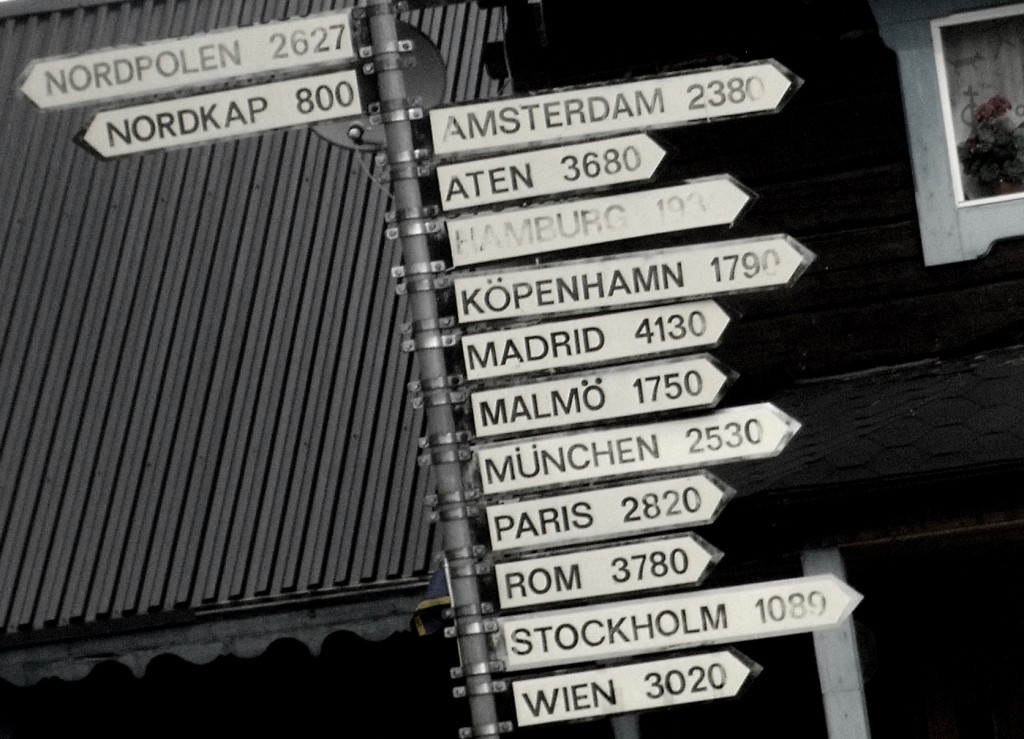Assistant professor in informatics, information architect, designer, piano player, author.
Borderline behavior
As an Italian living in Sweden, one of the things I’m acutely aware of is the idea of Europe. And while I understand we might hold different opinions as to whether the European Union is a good thing or not, one of its positive outcomes is that it turned borders within the EU zone into lines drawn on a map.

I’m sure most of us can agree on this. People can move freely, and the adoption of the Euro has made things even easier, making the occasional oddball country here up North holding on to its currency a charming diversion. We still have a little frictions at airports, with plenty of silly rules concerning what national documents will get you on a plane and which ones will get you anywhere but in a room with plenty of border police if you insist, but things at this level generally work. Europe is definitely different than it was 20 or 30 years ago.
So honestly, borders should be things of the past, right? Not only we are becoming more Europeans, but we tweet, we all are on Facebook, we share pics all over the world with Instagram, and we can access services from anywhere as long as we have broadband and valid user / password credentials. In all, we entertain interesting, borderless digital lives.
But here’s where something rather peculiar happens: whenever physical borders crisscross the digital layers superimposed on our lives, changing what we do and how we do it, and who we are in the process, a big switch goes off somewhere.
Want an example? Ok. I have a tons of them. Here’s a couple of my favorites, the second one being the hidden bomb we should have really been addressing already.
I still find it mildly amusing that whenever I try to buy anything but books from Amazon I have to play a quizzical game of figuring out if I have a better chance at a certain item, say some gadget or maybe a board game, if I try their UK website first, or the German, or the Italian. Or that will not work at all, because quirks galore. If you don’t believe this is one tricky process, try buying a PS3 from Amazon UK. Works fine, right? (you don’t have to, btw, trust me on this. It will work). Then try buying the “Black USB Mini Turntable Converts Records To MP3 CD Revive Old Classics”, one of those handy gizmos that can turn your old useless LPs, of which I have plenty for demographic reasons, into streams of bits encoded in MP3 format. Surprise. You can’t. The PS3 can cross the North Sea, but the turntable cannot.
Well, you say, Amazon will have their reasons. I’m sure they do. Only, if I check the Fly-Shop 3 Speed Turntable “mit MP3 Kodierung System und AM / FM-Stereo-Radio” on Amazon Germany, well, that definitely will cross the Baltic and get to Sweden, no problem.
So, I cannot buy from Amazon UK, but I can get something absolutely identical, feature-wise, from Amazon DE. It doesn’t really make sense, does it? And we have plenty of these little quirks scuttling through Europe. Without even considering the added burden of the usually high costs we sustain for shipping, those borders we successfully minimized in the physical world come back with a vengeance every time we try to get to goods through those very services we put in place to simplify our access to them.
And it doesn’t really get better if you consider digital only. Some providers (right Netflix?) are positively annoying at reminding you that you might think European, but your taxes, copyright laws, trade agreements, and hence your access to their service, are Swedish, Dutch, Austrian, or French.
Now, I’m not trying to play it dumb. I’ve been dabbling with the legal side of information systems enough to understand that this is certainly the product of either import regulations, or of economic stand-offs. Or both. My take here is user-centered, and, from the perspective of anyone who wants to offer such services, entirely entrepreneurial. As a prospective client, this game of the goose is not always that entertaining, and a disgruntled customer is a customer nobody really wants. As a service provider, that bouncing customer off borders that have no reason to exist could be a dangerous strategy. Competitors are after all just one click away. As a designer, I just think we are handling these things rather badly.
As for my second example, I’ll just ask you a question: have you been abroad of late? Visited any other European country? Yes? Great. Hope you enjoyed it. What about your mobile broadband? If you are like most of us, and not granted any company-paid smartphone or tablet for example, you have either appreciated the absolute pleasure of instant Internet death as soon as you lost sight of the last homely cell tower, or the delayed thrill of ginormous phone bills.
Again, I’m aware of the fragmented markets we have for telecoms, and I’m aware of infrastructural costs. I’m even aware Commissioner Kroes has moved a few decisive steps in this arena and we are waiting to see what’s going to happen. But I’m also aware of the fact that any European moving around Europe without the benefit of broadband is, in today’s competitive market, an opportunity lost. Whatever role you play in the game, you are losing. If we are serious about growth, prosperity, and quality of life, this shouldn’t even be something we discuss.
I seriously doubt the world and the transport industry would be what they are today if our cars either died as soon as we entered Denmark or we had to pay tenfold for anything, from gas to maintenance costs. And I seriously doubt we would consider that not even fair, but outright acceptable.
Detta är en bloggtext. Det är skribenten som står för åsikterna som förs fram i texten, inte Jönköping University.





